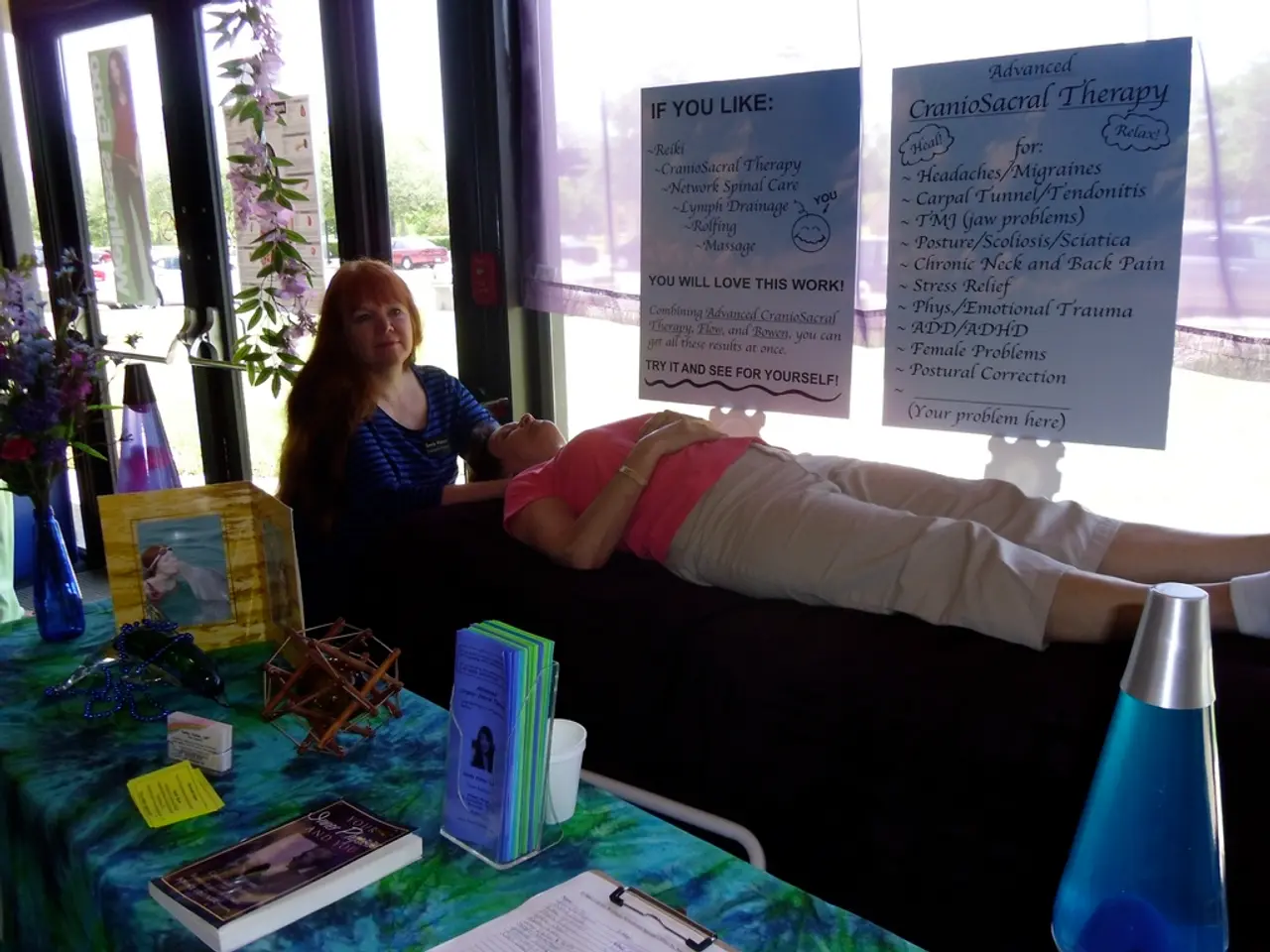Overcoming Stiff Shoulder: Restore Mobility and Alleviate Discomfort
For middle-aged women grappling with the debilitating condition of frozen shoulder, hope is within reach. By embracing a journey of recovery and rejuvenation, proactively engaging with healthcare providers, and advocating for their needs, they can reclaim their quality of life.
Frozen shoulder, medically termed adhesive capsulitis, is a musculoskeletal disorder predominantly affecting individuals between the ages of 40 and 60. Characterised by limited range of motion and persistent pain, it arises when the soft tissues surrounding the shoulder joint become inflamed, stiff, and restricted in movement.
Empowering middle-aged women with knowledge and tools to navigate the unique health challenges they face, including frozen shoulder, is a core mission. Early treatment of frozen shoulder helps reduce the duration and severity of symptoms.
## Effective Treatments
A range of treatments is available to manage frozen shoulder. Steroid injections, especially when combined with ultrasound guidance, can significantly reduce inflammation and pain. In some cases, if treated early, these injections can reverse the condition.
Physical therapy is crucial for improving range of motion and strengthening the shoulder muscles. It often becomes more effective after the initial pain has been managed with other treatments.
Hydrodilatation, a minimally invasive procedure, involves injecting a fluid mixture into the shoulder joint capsule to stretch it, reduce inflammation, and improve mobility.
Hormone Replacement Therapy (HRT) may lower the risk of developing frozen shoulder, according to research.
Hot and cold therapy can help reduce pain and inflammation.
## Exercises
While exercises are more effective once pain is managed, gentle mobilization and stretching can help maintain movement and comfort. Recommended exercises include the pendulum stretch, wall climb, armpit stretch, and cross-body stretch.
## Additional Recommendations
Gentle joint mobilization, soft tissue therapy, and laser therapy can also be beneficial in improving comfort and mobility.
Navigating the journey through frozen shoulder requires patience, a positive mindset, and a commitment to rehabilitation. Celebrating small victories and surrounding oneself with a supportive network of family, friends, and healthcare professionals is essential during the recovery process.
Underlying health conditions, such as diabetes, thyroid disorders, cardiovascular disease, and certain neurological conditions, have been linked to the development of frozen shoulder. A history of shoulder injuries, surgeries, or prolonged periods of immobilization can also increase the likelihood of developing frozen shoulder.
Diagnosing frozen shoulder requires a comprehensive physical examination, possibly accompanied by imaging tests like X-rays or MRI scans. Preventive measures, such as daily stretching and range-of-motion exercises, can help maintain shoulder flexibility and reduce the risk of developing frozen shoulder.
The condition predominantly affects middle-aged women, and the journey to recovery from frozen shoulder can take several months up to 2 years. However, with the right approach and support, it is possible to conquer frozen shoulder and reclaim a life free of pain and limited mobility.
- Middle-aged women, coping with the discomfort of frozen shoulder, can find solace in the health-and-wellness sector, where effective treatments are available.
- A proactive approach to frozen shoulder management might involve self-care measures like hot and cold therapy to alleviate pain and inflammation.
- In the realm of style and beauty, it's crucial for middle-aged women to prioritize wellness and maintain a fitness routine to minimize the risk of developing health problems like frozen shoulder.
- The condition of frozen shoulder, primarily affecting middle-aged women, can be mitigated through science-backed treatments such as Hormone Replacement Therapy (HRT), steroid injections, and minimally invasive procedures like hydrodilatation.
- Within the fitness-and-exercise realm, gentle exercises like the pendulum stretch, wall climb, armpit stretch, and cross-body stretch can aid in maintaining movement and comfort once the initial pain has been managed.
- Self-care and a positive mindset, along with a supportive network of family, friends, and healthcare professionals, play a significant role in the recovery process from frozen shoulder for middle-aged women, a demographic that often grapples with this health issue.




